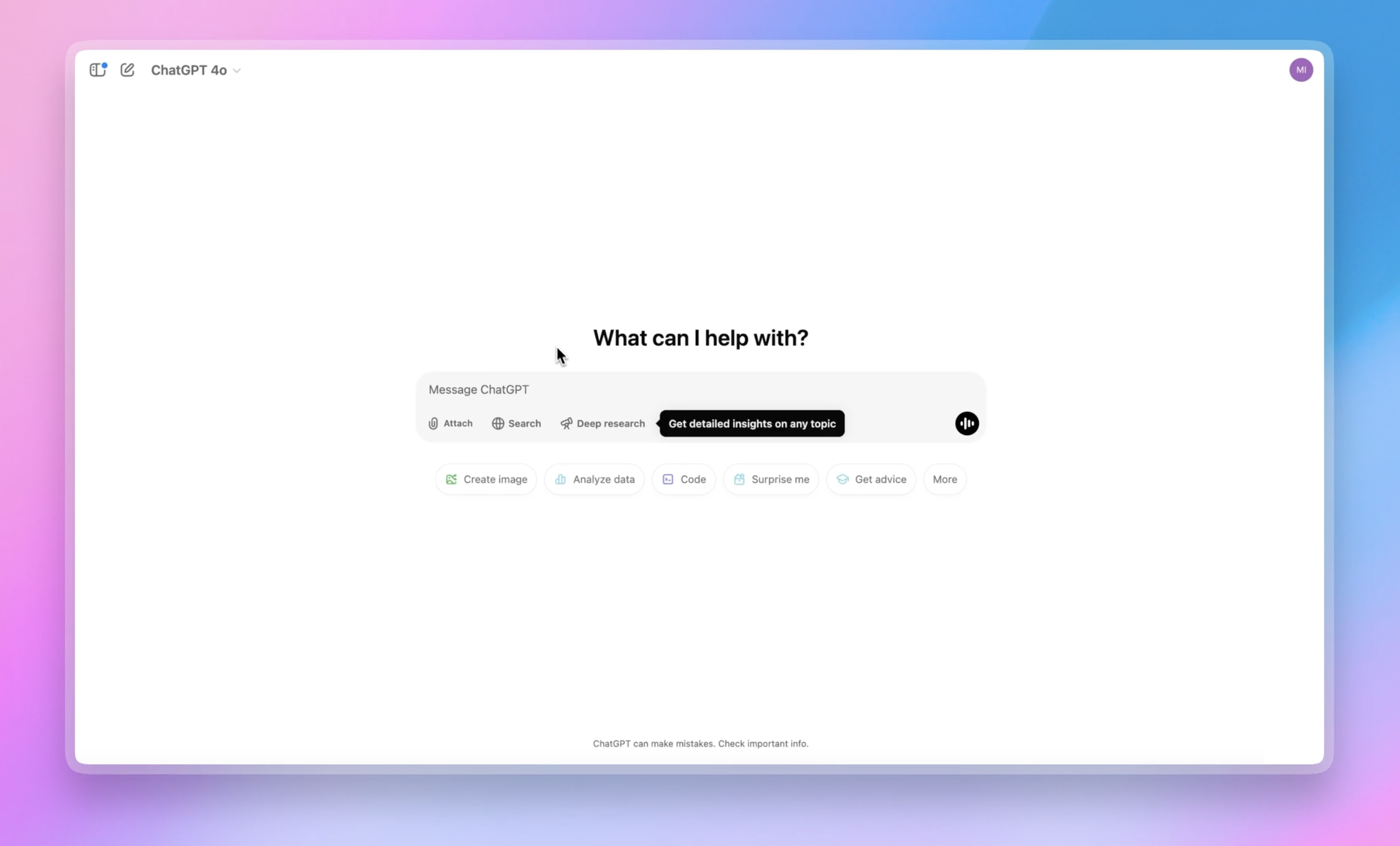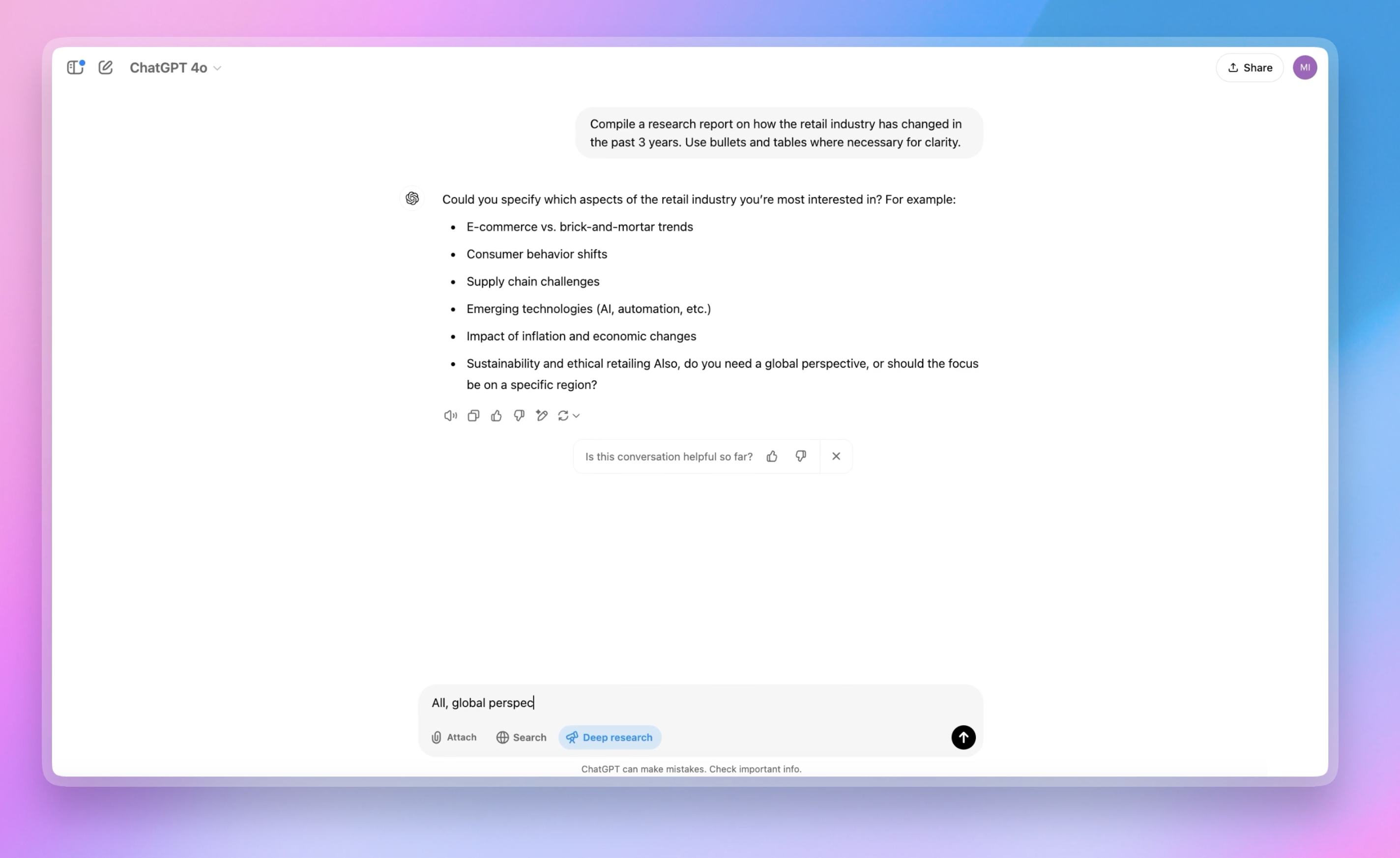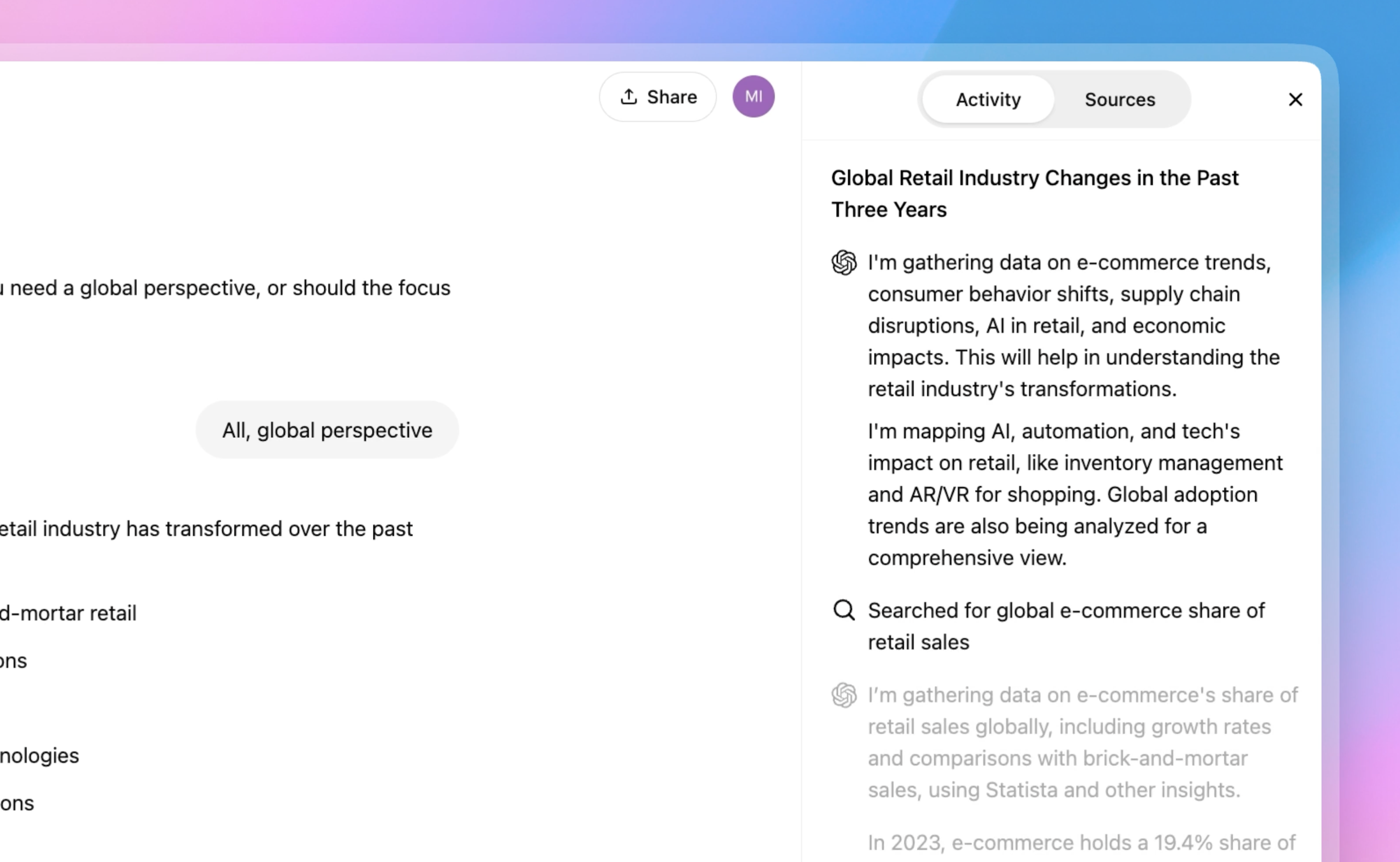What is OpenAI's Deep Research? Everything we know about the best AI research assistant
OpenAI Deep Research goes deep on whatever topic you want, sometimes taking hours to compile a detailed report

Sign up for breaking news, reviews, opinion, top tech deals, and more.
You are now subscribed
Your newsletter sign-up was successful
OpenAI Deep Research is an advanced AI tool designed to autonomously conduct comprehensive, multi-step research tasks.
Leveraging OpenAI's o3 reasoning model, it searches, interprets, and analyses vast amounts of online data to generate detailed reports, a particularly valuable innovation for professionals requiring in-depth analysis and synthesis of information.
Whether you need financial analysis, scientific insights, or technical reports, OpenAI Deep Research can streamline the process, reducing manual workload while increasing efficiency.
The tool lets users input queries in various formats, including text, images, and uploaded files, before executing a research plan and generating well-structured, citation-backed reports.
This article was correct as of February 2025. AI tools are updated regularly and it is possible that some features have changed since this article was written. Some features may also only be available in certain countries.
- Try out Deep Research
- The best AI tools – ChatGPT, DeepL, Midjourney, and more
What is Deep Research?
Launched in February 2025, OpenAI Deep Research is an AI research agent designed to automate complex research workflows.
Built on OpenAI's o3 model, the tool is specifically optimized for web browsing, enabling it to navigate online sources, extract key information, and synthesise comprehensive reports.
Sign up to the TechRadar Pro newsletter to get all the top news, opinion, features and guidance your business needs to succeed!
Unlike general AI chatbots, which primarily respond to direct prompts, OpenAI Deep Research is capable of multi-step reasoning, autonomously conducting deep-dive research on intricate topics.
The AI can process various types of input, including text-based questions, images, and uploaded PDFs, letting users refine their research approach. It then searches and compiles information from multiple sources, generating structured reports within five to 30 minutes.
By using advanced AI reasoning, it evaluates sources, summarizes findings, and provides citations, making it a powerful tool for professionals who need detailed insights without manually sifting through data.
Of course, as with all LLMs, there are issues with hallucinations, and it's definitely worth double-checking any outputs, especially those used in a professional context where accuracy is paramount.

What can you use Deep Research for?
OpenAI Deep Research is particularly useful for professionals in finance, engineering, science, and academia who require in-depth analysis of complex topics.
Businesses can use it for market research, competitive intelligence, and financial forecasting, while academics and researchers can benefit from its ability to conduct literature reviews, summarize technical documents, and identify key trends.
By inputting a query in natural language or uploading supplementary documents, users receive a detailed report that distils essential information and presents it in a clear, readable format.
Its ability to significantly reduce the time spent on manual research makes it ideal for professionals who need fast yet comprehensive insights.
What can’t you use Deep Research for?
Despite its strengths, OpenAI Deep Research is not suited for every use case.
Like many AI-driven tools, it is prone to occasional inaccuracies, often referred to as "hallucinations", where it misinterprets data or generates misleading information. For this reason, it is not advisable to rely on it for tasks requiring absolute factual accuracy, such as legal documentation, medical research, or regulatory compliance.
Additionally, it does not function as a real-time data aggregator, meaning it may not always provide the most up-to-date insights on rapidly evolving topics, such as breaking news or stock market fluctuations.
Users seeking an AI assistant for creative tasks, including writing fiction, opinion pieces, or artistic work, will also find its capabilities limited, as it is strictly designed for research-based analysis rather than subjective or imaginative output.
How much does Deep Research cost?
Initially, OpenAI Deep Research was available only to ChatGPT Pro subscribers, costing $200 (around £160) per month for 100 research queries.
However, as of February 2025, OpenAI expanded access to include ChatGPT Plus users, who can now utilise the feature for $20 (or £16) per month, albeit with a lower limit of 10 queries.
Pro users, meanwhile, now receive 120 queries per month as part of their subscription.
Where can you use Deep Research?
OpenAI Deep Research is integrated into the ChatGPT platform and can be accessed via the web interface or the ChatGPT mobile app.
It is available exclusively to ChatGPT Plus and Pro subscribers, meaning free-tier users do not have access to the tool, at least not at the time of writing.

Is Deep Research any good?
TechRadar has not yet reviewed OpenAI Deep Research, but initial feedback from users suggests that it is a valuable tool for automating research-intensive tasks, and some praise its ability to compile well-organized reports, extract relevant insights, and provide citations.
However, some users raise concerns about occasional inaccuracies (or hallucinations) and its reliance on publicly available sources, which may limit its usefulness in proprietary research or time-sensitive investigations.
While it significantly reduces research effort, Deep Research still requires human oversight to verify findings.
Use Deep Research if
- If you require an advanced AI tool to automate complex research and provide structured reports, OpenAI Deep Research is an excellent option. It is particularly beneficial for professionals in finance, engineering, and academia who need rapid access to well-organized insights.
- Additionally, if you frequently conduct market analysis, competitive intelligence, or literature reviews, Deep Research can simplify the process by synthesizing information from multiple sources into an easy-to-digest format.
Don’t use Deep Research if
- If your work demands absolute precision without human verification, OpenAI Deep Research may not be the right fit. The AI can misinterpret data or generate misleading conclusions, making it unsuitable for tasks that require high factual accuracy, such as legal, medical, or regulatory research.
- It is also not the best choice for users seeking real-time news aggregation, fact-checking, or creative content generation.
Also consider
DeepSeek R1 is a viable alternative to OpenAI Deep Research, offering similar AI research capabilities at a competitive price. It is particularly well-suited to users who require deep research functionality without committing to OpenAI’s pricing model.
Another strong competitor is Google's Gemini Deep Research, which leverages Google's search infrastructure to conduct multi-step research tasks. If you prefer AI tools that integrate seamlessly with Google’s ecosystem, this could be better.
Max Slater-Robins has been writing about technology for nearly a decade at various outlets, covering the rise of the technology giants, trends in enterprise and SaaS companies, and much more besides. Originally from Suffolk, he currently lives in London and likes a good night out and walks in the countryside.
You must confirm your public display name before commenting
Please logout and then login again, you will then be prompted to enter your display name.